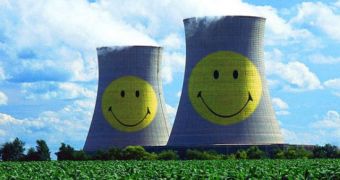Earlier this week, Belarus started work on a brand-new nuclear power plant. Thus, it was on November 6 when the first nuclear safety-related concrete was poured.
Construction activities began just four days after the country's leader signed a Presidential Decree giving the green light to this project on November 2.
The facility will be located in the Grodno region, in the country's northwest, and will be made up of two units. According to the International Atomic Energy Agency, the first of these two units will become operational in about 5 years’ time.
The second one is scheduled to go online a couple of years later, the same source details.
“The first of two 1 170 megawatt-electric (MWe) units of the Russian VVER type (AES-2006) technology is scheduled to be in operation by 2018. The second unit is planned to be operational by 2020,” the Agency writes on its website.
“The light water reactors are supplied by Atomstroyexport of the Russian Federation. The contract between Belarus and the Russian Federation includes fuel supply, take-back of spent fuel, training and other services. The project will be implemented on a ‘turnkey’ basis,” it adds.
The facility now under construction is the first of its kind ever built in this country. High officials explain that building it was necessary in order to cope with the national increase in energy demand.
By the looks of it, the plant will be operated by state enterprise Directorate for Nuclear Power Plant Construction. The Directorate is also in charge of the implementation of the project.
Interestingly enough, the news that Belarus has begun work on its first nuclear plant comes shortly after four top climate scientists wrote an open letter to environmental campaigners and climate scientists, and argued that this energy source can help curb climate change and global warming.
“With the planet warming and carbon dioxide emissions rising faster than ever, we cannot afford to turn away from any technology. The time has come for those who take the threat of global warming seriously to embrace the development and deployment of safer nuclear power systems,” the researchers wrote in their letter.

 14 DAY TRIAL //
14 DAY TRIAL //